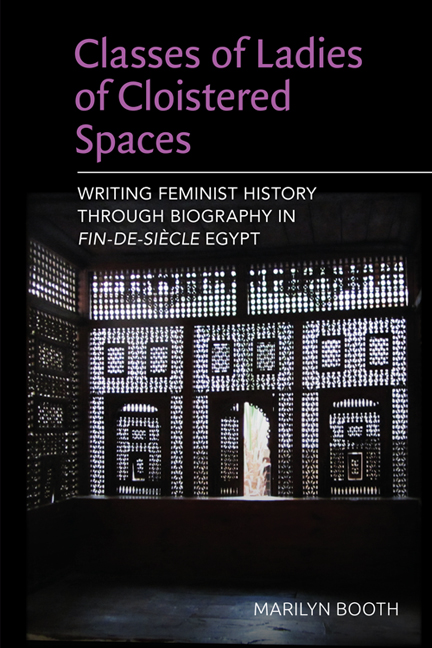Book contents
- Frontmatter
- Contents
- Acknowledgements
- Dedication
- I Pearls Scattered: An Introduction
- II A Women's World History, in the World of Arabic Letters: A Reader's View
- III Founding Mothers, Speaking Sisters: Lineaments of Community in History
- IV Writerly Pursuits: A Compiler's Archive
- V A Beckoning Compass, Circulating Lives: The Bustani Encyclopedia and Other Nineteenth-century Sources
- VI Interlocutors? Men Authoring Women's History in the 1890s
- VII Framing a History of the Present: or, Did the Pearls Scatter to the World's Fair?
- VIII Violent Romances: The Bodily Drama of Patriarchal Trauma
- Conclusion: A World of Women, Feminist History and the Importance of the Feminine Signature
- Appendix I: Translations
- Appendix II: List of Fawwaz's Pearls
- Notes
- Bibliography
- Index
III - Founding Mothers, Speaking Sisters: Lineaments of Community in History
Published online by Cambridge University Press: 05 August 2016
- Frontmatter
- Contents
- Acknowledgements
- Dedication
- I Pearls Scattered: An Introduction
- II A Women's World History, in the World of Arabic Letters: A Reader's View
- III Founding Mothers, Speaking Sisters: Lineaments of Community in History
- IV Writerly Pursuits: A Compiler's Archive
- V A Beckoning Compass, Circulating Lives: The Bustani Encyclopedia and Other Nineteenth-century Sources
- VI Interlocutors? Men Authoring Women's History in the 1890s
- VII Framing a History of the Present: or, Did the Pearls Scatter to the World's Fair?
- VIII Violent Romances: The Bodily Drama of Patriarchal Trauma
- Conclusion: A World of Women, Feminist History and the Importance of the Feminine Signature
- Appendix I: Translations
- Appendix II: List of Fawwaz's Pearls
- Notes
- Bibliography
- Index
Summary
In ‘Felicity Does Not Arise from Material Prosperity’, Fawwaz heralded the emergence of a new age in which the thick walls of women's sequestration were crumbling, the dark clouds of invisibility lifting to reveal the east's powerful beams of sunlight. Fawwaz linked this era to the past. If her age ‘has returned to [seeing] progress and reform’, it is only recognisable because ‘a long era passed in which the door to happiness was always bolted in front of us, we women’. Fawwaz drew from the imagery of the harem system, making use of the figure of the confined and concealed woman – the ‘cloistered lady’ of her title – which in her biographies she showed to be an incomplete, oversimplistic label, even an empty signifier. She thus referred metaphorically to a history of difficult transitions but one which also involved a distant past as a positive prehistory of the present. She pointed to the historical nature of gender oppression by noting that men's treatment of women had led the latter to ‘come to imagine’ their passivity and seclusion as due to ‘natural’ difference rather than gender-specific social imbalances imposed on a subordinated class of people by a more powerful group or as contingent and variable social-spatial relations. These verbs, ‘to return’ and ‘to come to imagine’, gesture to an indigenous past: to the legacies of earlier Arab and Muslim women, who as overlapping but not fully congruent categories comprise the largest share of life histories in Pearls Scattered.
From the essay ‘Knowledge is Light’ – Fawwaz's report on her female acquaintances’ understanding of women of the Prophet's family, quoted earlier – and her tone of disgust as she narrates herself leaving the room, we can well imagine that Fawwaz, knowing women invoked such historical figures in their understandings of their own lives, was concerned to offer both a historical primer and a wider array of possible models through ‘self-help history’.
- Type
- Chapter
- Information
- Classes of LadiesWriting Feminist History through Biography in Fin-de-siecle Egypt, pp. 95 - 123Publisher: Edinburgh University PressPrint publication year: 2015



